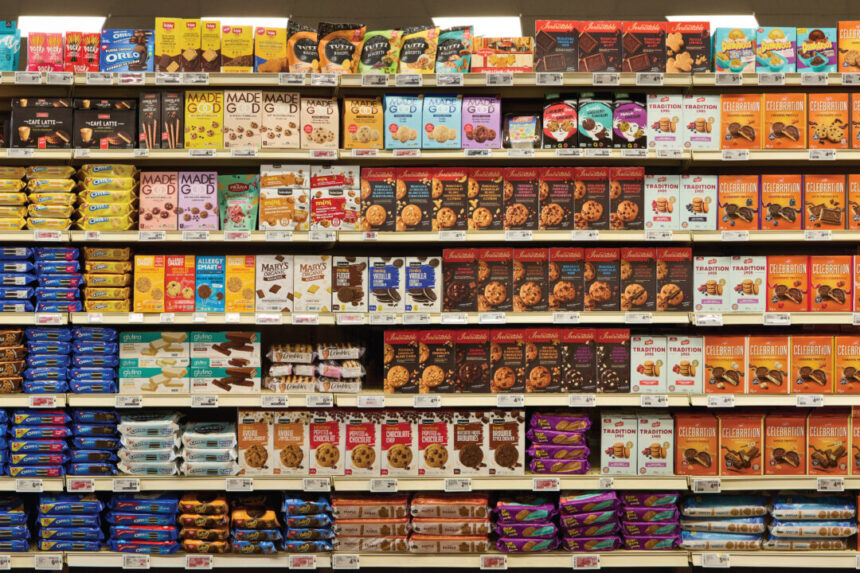In recent years, there has been a noticeable increase in consumers opting for private-label products at grocery stores to save money. This trend seems to be gaining traction and becoming a long-term preference among shoppers.
Grocers are investing more in their store-branded offerings, and studies indicate that many consumers no longer view store brands as inferior to name brands in terms of quality.
Annie St-Laurent, senior director for Metro’s private-label portfolio, notes that private brands are evolving beyond mere imitations and are experiencing significant growth.
Popular in-house brands like Metro’s Irresistible and Selection, Loblaw’s No Name and President’s Choice, and Sobeys’ Compliments and Panache are typically priced lower than their name-brand counterparts.
Private-label brands are currently experiencing a surge in popularity, as shoppers are turning to store brands more frequently due to rising prices caused by inflation and interest rate hikes.
Retailers are responding to this increased interest by introducing new products and allocating more shelf space to their private labels. Peter Chapman, founder of consulting firm SKUFood, highlights the expanded depth of private-label categories as a strategic opportunity for retailers.
Market research firm NielsenIQ reports that retailers are not only introducing new products but also investing in branding and marketing efforts to promote their private-label offerings.
Metro, for example, is set to launch a refresh of its core private label, Irresistible, with a revamped logo, products, packaging, and flavors to enhance visibility within the store.
The rebranding efforts align with Metro’s strategy of expanding its assortment of private-label products to meet growing customer demand, with sales growth outpacing national brands.
Christy Laverty from Burlington, Ontario, shares her experience of shifting to store brands as prices have increased. She emphasizes the value of private-label products for everyday items like canned vegetables, beans, and dairy products.
Consumer perceptions of private-label foods have improved significantly in recent years, signaling a shift towards a more permanent preference for store brands over name brands.
Empire Co. Ltd., the parent company of Sobeys, FreshCo, and Safeway, plans to continue enhancing its portfolio of store brands, while Loblaw has seen sales growth driven by its strength in private label products.
Grocers view private-label products not only as a source of better margins but also as a means of fostering customer loyalty.
As competition intensifies, retailers are expected to focus on new products, marketing initiatives, promotions, and shelf space to maintain strong private-label sales.
Overall, the trend towards private-label products is reshaping consumer shopping habits and influencing the strategies of grocery retailers.
Please rewrite this sentence.
Source link




